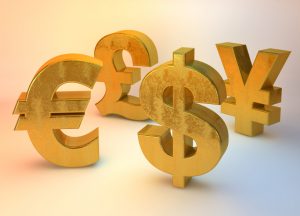How Can You Determine the Value of a Business?
“What’s my business worth?” This is a question we get nearly every day.
Whether you’re selling one, buying one or acting as a broker for one, you have to know the value of the business you’re selling, buying or marketing.

If you’re selling, not knowing the company’s value will result in either leaving money on the table or spending many months – and sometimes years – futilely trying to find a buyer. If you’re buying, not knowing the value of the target company means you could be paying too much. If you’re the broker, marketing the business at too low a price does a disservice to your client. Marketing the business at too high a price also does a disservice to your client insofar as the chances of a successful transfer are slim and, assuming you are working on a commission agreement, you are unlikely ever to get paid thereby wasting your time, the time of your staff and the money expended in marketing the business.
So, how do we handle this dilemma? How do we set the right price on the business? And, most importantly, how do we get our client, the seller, to see the wisdom of listing at a number reasonably close to that price?
Unfortunately, we are generally the bearers of bad news. When we meet with the owners of a business to go over our valuation of that business, it is not uncommon to hear moans, groans and expressions of disbelief that their baby is not worth something close to what Apple is worth. (Well, maybe not Apple, but you get the picture.) People who have worked 10, 15 or more years building a business generally have an inflated opinion of that business’ value. We often hear about what the owners had to go through to get the business to where it is; that their business helped them put three kids through university; how it paid for their daughter’s wedding, etc. Of course, none of this matters to a buyer who is concerned solely with how much money the business will generate. It’s a tricky situation but with the proper presentation and approach, a business owner can be educated about value. This is what we teach our brokers.
Does the Business Meet the Basic Needs of a Buyer?
First of all, remember that a business has to do three things for its owners: 1) pay the owners (or their managers) reasonable salaries so they can support their families; 2) pay for itself; i.e., pay off the financing used to buy the business; and, 3) provide the buyer a return on its cash investment in the business. (We discussed these issues in detail in a previous post.)
The sellers have got to be educated about these three basic points. In addition, they have to understand that there are hundreds and maybe thousands of businesses similar to theirs for sale at any given time and that their business must be priced competitively if it’s going to sell. They have to understand that the most important aspect of a business in the minds of buyers is the discretionary earnings (DE) of the business – what the business will put in the pocket of whoever owns it. A cool name, cutting edge advertising campaign or sterling reputation in the community will matter little compared to the business’ DE. Granted, there are a few other things that might get a buyer’s attention but not many. For example, if the business is a furniture store and the local paper announces that 3500 residential units were just approved for two parcels less than five miles away a potential buyer might be moved to pay a premium. On the other side of the coin, if the business is a boat dealership and the state or province just levied a new Waterway Protection Tax that applies to all boat sales, a potential buyer might feel a discount to the current value might be appropriate. These are real possibilities. (We’ll do a future post with actual examples of such outside influencers.)
But absent such unusual events, the financial performance of a business during the previous two or three years is what a buyer will look at and that performance will be the primary aspect of the business on which a buyer will make a decision. So, the valuation has to be right and an analysis of the financial statements and tax returns is where a valuation starts.
What Does the Business Really Make?
Because privately owned companies tend to keep reported profits – and thus taxes – as low as possible, financial recasting is an important element in order to understand the earning capacity of a business. Such recasting allows meaningful comparisons with other investment opportunities. Financial recasting adds back depreciation and amortization because such items are non-cash expenses. Interest expense is added back as it is a result of the current owners’ financial decisions. EBITDA (Earnings Before Interest, Taxes, Depreciation and Amortization) must be further adjusted to eliminate such items as excessive and discretionary expenses, owner’s salary and nonrecurring expenses. Analyzing and properly recasting the financial statements results in a truer representation of the owners’ benefits, or DE, than the initial financial statements and tax returns will suggest. It represents the amount of cash available to the owner – current and future – for financial decisions. DE – Discretionary Earnings – is the typical measure on which small businesses are valued and acquired.
Once the DE is determined, some research is required to see what similar businesses have sold for relative to their revenues and discretionary earnings. Whatever you’re buying or selling, I guarantee that dozens and maybe hundreds of similar businesses have sold and are for sale. Those that are for sale are the competition. Those that have sold will tell you what buyers are paying for similar businesses. The latter statistic is more important.
 From location, industry type and management team to aging of receivables and the age and condition of the equipment, there are many factors that go into determining a business’s value but looking at what similar businesses have sold for is the best place to start the next phase of your valuation. If the sale prices of the “sold” businesses range between 2.3 and 2.6 times DE, you might multiply the DE of the subject business by 2.45 to get a reasonably accurate valuation. In an example from our archives, one of our clients owns a business doing $1.3 million in revenue with DE of $282,000. Using the business’ SIC or NAICS number, we found more than 10 similar businesses that sold for sale prices that ranged between 2.5 and 2.8 times DE. This suggested that the market value of our client’s business was between $705,000 and $789,600. By analyzing the sales prices of the sold businesses further, we could determine the “mean” and “median” multiples. In this case, the average of the two was 2.68 times DE: $755,760.
From location, industry type and management team to aging of receivables and the age and condition of the equipment, there are many factors that go into determining a business’s value but looking at what similar businesses have sold for is the best place to start the next phase of your valuation. If the sale prices of the “sold” businesses range between 2.3 and 2.6 times DE, you might multiply the DE of the subject business by 2.45 to get a reasonably accurate valuation. In an example from our archives, one of our clients owns a business doing $1.3 million in revenue with DE of $282,000. Using the business’ SIC or NAICS number, we found more than 10 similar businesses that sold for sale prices that ranged between 2.5 and 2.8 times DE. This suggested that the market value of our client’s business was between $705,000 and $789,600. By analyzing the sales prices of the sold businesses further, we could determine the “mean” and “median” multiples. In this case, the average of the two was 2.68 times DE: $755,760.
Business Valuation: Test the Results
But that’s just one measure of value. We like to test our results by using other methods of valuation to see if we can confirm those results. One way we do that is to examine what the “sold” businesses sold for in relation to their revenue. Referring back to our list of “solds”, we found that they sold for between .520 and .545 of revenue. Applying these numbers to our client’s business suggested that the value was between $676,000 and $708,500. The “mean” and “median” number averaged .53 or $689,000.
The $66,760 difference is not very significant – roughly 10% – and so we were gaining more confidence in our numbers. The next step is to give each of these numbers a weight for reconciling to a value.
Because buyers are most interested in DE – what they can make – we generally give a higher rating to the value arrived at using the DE method of valuation. In this case we gave the DE valuation a weighting of 70 ($755,760 x .7=$529,032) and the revenue valuation a weighting of 30 ($689,000 x .3 = $206,700) thus arriving at a valuation of $735,732. (Note that all values are before inventory is factored.)
(Disclaimer! This post is not intended to be a thorough examination and tutorial for valuing businesses (we provide that, if you’re interested) but only to give an overview of this basic approach.)
Once you’ve completed this process and prepared your report, the resulting document will demonstrate with sufficient authority to the owner that you know what you’re doing and that the only discussion at this point is whether the owner wants to list the business for sale. But as an added benefit, the valuation report that we prepare also becomes the basis for our primary marketing piece, the Offering Memorandum. Using the report as a sales tool – as a justification of the asking price – virtually eliminates any argument by the buyer that the business is overpriced.
So, in short, what is the value of the valuation? It shows everyone involved – the seller, the buyer and the broker – what the business is actually worth on the open market. If the business is to be sold, it justifies the price to the buyer. If the business sale is to be financed, it serves as a basis for the lender to determine the amount of money it can lend. If the business has multiple owners and if those owners have wisely put in place buy-sell agreements backed by life insurance policies, it serves as the basis to determine the amount of insurance that should be maintained. And, finally, if the business owners simply want to know where they stand on their path to an exit, it does that also.
There are times we are asked to list a business at a price that is substantially above the business’ value as determined by our valuation report. We advise our brokers to decline such assignments because such businesses are unlikely to find a buyer. There are plenty of properly-priced businesses for sale and I would rather focus my attention on those that we know we can sell rather than spin our wheels endlessly on ones that are overpriced.
We do business valuations all the time and if we can do one for you – or help you do one – we’d be happy to discuss it with you. If you have any questions about valuing businesses, let me know in the Comments box, below.
Joe

